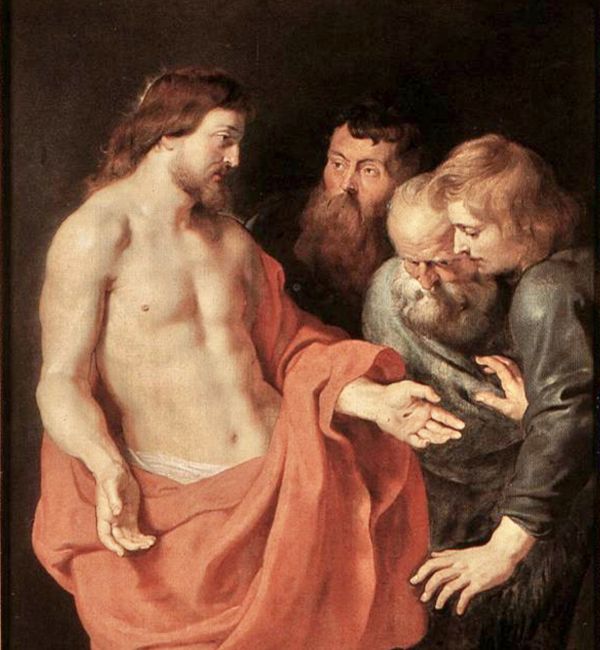On the first day of the week Jesus went behind closed doors into the place where the disciples were gathered.
He gave them the mandate to proclaim the Good News, "breathing" on them so that they would receive the Holy Spirit.
Thomas, absent, struggled to believe and received a reprimand from Jesus for claiming to see and touch, without accepting the testimony of the other disciples.
Yet Thomas sought the first-hand experience of the Risen One.
The Poor Man of Assisi and his brothers grew in faith also through an active encounter with the Lord in lived poverty, solitude and prayer experienced in daily life.
Faith in Jesus, who had died on the cross as an evildoer to assure us of Life without end, overflowed into the bare minority existence of Francis and his disciples.
Certainly it was a divine gift, but it was also the fruit of a non-formal relationship, developed in the itinerary undertaken.
It is worth recalling what the Sources attest:
"[Francis] taught them to praise God in all creatures; to honour priests with particular veneration, as well as to believe firmly and confess frankly the truth of the faith [...].
They observed in everything and for everything the teachings of the holy father and, as soon as they saw some church from afar, or some cross, they turned towards it, prostrating themselves humbly on the ground and praying according to the form indicated to them" (FF 1069).
Clare herself, in her Letter to Ermentrude of Bruges, regarding the life of Faith, suggests:
"Remain, therefore, O dearest one, faithful until death to Him to whom you are bound for ever. And surely you will be crowned by Him with the crown of life.
The time of toil here below is short, but the reward is eternal.
Let not the splendours of the world that passes like a shadow daunt thee.
Let not the empty images of this deceiving world surprise you; close your ears to the hisses of hell and break its temptations from strength.
Endure adversity willingly, and let not pride swell your heart in prosperous things; these call you to your faith, those require it" (FF 2914).
The experience of God in their lives had been so strong, so incisive and so merciful that they could speak as no one had ever done.
«Thomas answered and said to him, 'The Lord of mine and the God of mine!'» (Jn 20:28)
2nd Easter Sunday (Jn 20:19-31)












